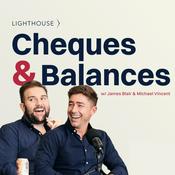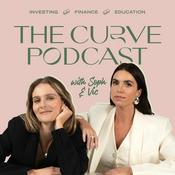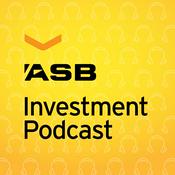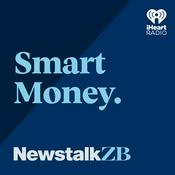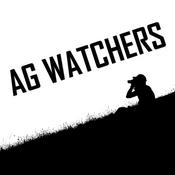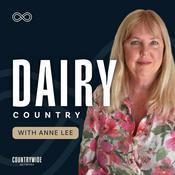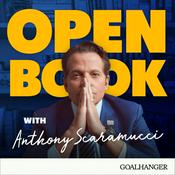65 episodes
- It’s a bit of a mix and match episode this week. We start with discussing the ugly move higher across inflation expectations. Then switch to the latest stats on the PMI and PSI activity indicators. And later end up talking about one of, if not the biggest challenges facing the Kiwi economy: an aging population.
An aging population certainly isn’t a new problem. We even joke on the podcast about a note Jarrod wrote 10 years ago on the topic and how he could dust it off and change the publishing date to today and it would all still be perfectly relevant. More importantly though, an aging population is certainly not a future issue either. Treasury predicts that in just 5 years’ time, close to a quarter of all tax revenue will go to pensions alone if nothing changes. That’s a huge share of funding and takes away from other areas that badly need funding too.
Lifting the retirement age, increasing KiwiSaver contributions, and making them compulsory are all part of the toolkit to tackle the issue. But so is migration. It’s the fountain of youth as Jarrod first wrote ten years ago. So fittingly, we end with a chat about the latest migration figures and where to next from here.
PS: You can check out Jarrod’s demographic note from early 2017, which has truly stood the test of time, here: https://www.interest.co.nz/bonds/85722/cbas-director-interest-rate-strategy-says-demography-destiny-interest-rates-immigration
Hosted by Jarrod Kerr, and Sabrina Delgado.
Follow our economic commentary & insights here: https://www.kiwibank.co.nz/business-banking/thrive-hq/kiwi-economics/commentary-insights/
Any views or information shared in this podcast, while given in good faith, aren't necessarily the view of Kiwibank. - This week we’ve delved into the latest labour market stats. A fitting topic as we farewell MJ on her last episode on the podcast and her time at Kiwibank. We also talk about what we’ve seen in our own hiring process
The headline unemployment rate has lifted from 5.3% to 5.4%. At first glance, the move doesn’t look good. But beneath the bonnet, there’s encouraging signs that the appetite for labour is improving. From the lift in employment to the uptick in the total hours worked.
At the same time though, we’ve also seen an influx of people dusting off their CVs and reengaging with the jobs market. The labour force saw the strongest increase in two and a half years. And we’ve seen an uptick in participation. But while more talent is coming forward, labour demand isn’t yet strong enough to fully absorb the influx of new job seekers.
Hosted by Jarrod Kerr, Mary Jo Vergara and Sabrina Delgado.
Follow our economic commentary & insights here: https://www.kiwibank.co.nz/business-banking/thrive-hq/kiwi-economics/commentary-insights/
Any views or information shared in this podcast, while given in good faith, aren't necessarily the view of Kiwibank. - The gold rush has gone bust. We’ve seen a savage sell off in precious metals, just after seeing some shiny record highs. Kevin Warsh becoming the next US Fed chair has removed much of the fear within markets around diminished Fed independence.
Markets are still digesting the news of Trump’s pick for Fed chair. Warsh has a reputation as a monetary hawk. And despite recently supporting lower near-term rates, markets are picking that he may return to his hawkish roots. Especially because of his strong advocacy for shrinking the Fed’s balance sheet.
Tune in as we discuss our thoughts on quantitative tightening, the anti-trump trade, yield curves, and the diversification out of US assets.
Hosted by Jarrod Kerr, Mary Jo Vergara and Sabrina Delgado.
Follow our economic commentary & insights here: https://www.kiwibank.co.nz/business-banking/thrive-hq/kiwi-economics/commentary-insights/
Any views or information shared in this podcast, while given in good faith, aren't necessarily the view of Kiwibank. - New year, and we're back at it! Kicking us off - hot inflation. To a bit of dismay, Kiwi inflation ended 2025 above the RBNZ’s 1-3% target band. The lift in headline inflation is a frustration. But it’s the dirty details, from sticky domestic inflation to stubborn underlying inflation that are of most concern.
There was overall more broad-based strength than we expected across prices in the December quarter. But the signs aren't there yet to suggest a shift in demand. Importantly, we still expect annual inflation to fall back within the band this year. Although naturally, amongst traders and the like, the discussion is shifting from rate cuts to rate hikes. We agree, the next move is likely to be a hike. But we think it is still a story for 2027.
In other news, we're hiring! MJ is becoming part of the statistic and crossing the ditch. It's a big loss. But we're on the lookout for the next MMM co-host. So, if would like to join our tight-knit economics team, please get in touch or check out the link below
https://kiwibankpeople.csod.com/ux/ats/careersite/1/home/requisition/2827?c=kiwibankpeople Hosted by Jarrod Kerr, Mary Jo Vergara and Sabrina Delgado.Follow our economic commentary & insights here: https://www.kiwibank.co.nz/business-banking/thrive-hq/kiwi-economics/commentary-insights/Any views or information shared in this podcast, while given in good faith, aren't necessarily the view of Kiwibank. - We’ve pulled out the crystal ball, quite literally, and gazed deep into the mists to see what 2026 has in store for the Kiwi economy!Our inner mystics have come out to play. We’ve updated our forecasts and the future is bright. We continue to forecast a robust recovery. The settings are about right. Even with a frustrating rise in retail rates. A premature move sparked by a sell off in wholesale rates following the RBNZ’s messaging misstep in November.Beyond Kiwi growth, we also discuss the outlook for housing, inflation, the labour market and migration for next year and beyond. Tune in to see what the future has in store. Additionally check out our full Outlook note here.Hosted by Jarrod Kerr, Mary Jo Vergara and Sabrina Delgado.Follow our economic commentary & insights here: https://www.kiwibank.co.nz/business-b...Any views or information shared in this podcast, while given in good faith, aren't necessarily the view of Kiwibank.
More Business podcasts
Trending Business podcasts
About Markets, Mystics and Mayhem
Join the Kiwibank Economists and the occasional special guest on this weekly series. We'll delve into data, decipher policy decisions, monitor the markets and analyse the issues impacting the Kiwi economy. Hosted by Jarrod Kerr, Mary Jo Vergara and Sabrina Delgado.
Any views or information shared in this podcast, while given in good faith, aren't necessarily the view of Kiwibank.
Podcast websiteListen to Markets, Mystics and Mayhem, The Happy Saver Podcast - Personal Finance in New Zealand and many other podcasts from around the world with the radio.net app

Get the free radio.net app
- Stations and podcasts to bookmark
- Stream via Wi-Fi or Bluetooth
- Supports Carplay & Android Auto
- Many other app features
Get the free radio.net app
- Stations and podcasts to bookmark
- Stream via Wi-Fi or Bluetooth
- Supports Carplay & Android Auto
- Many other app features


Markets, Mystics and Mayhem
Scan code,
download the app,
start listening.
download the app,
start listening.






